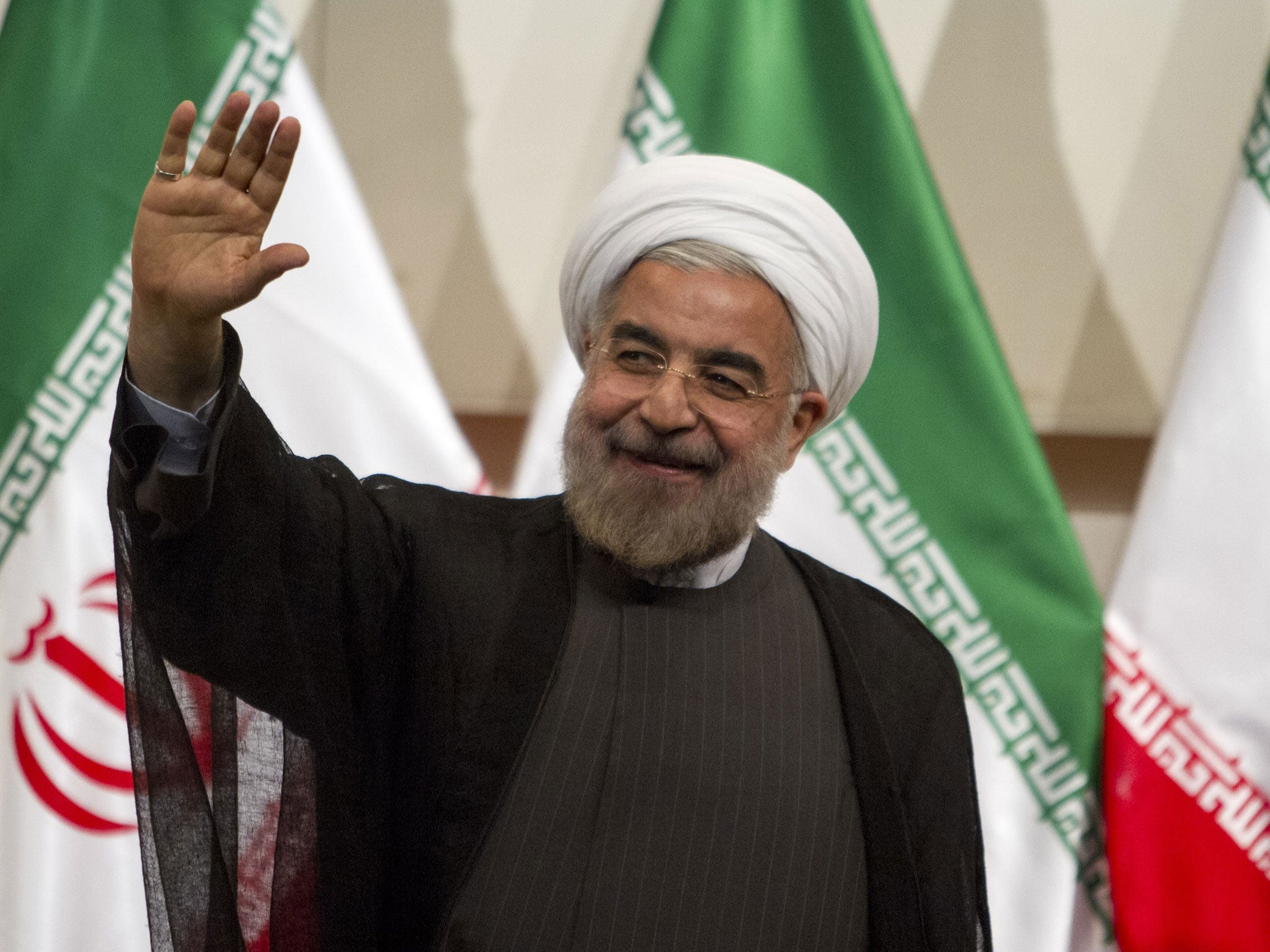No change on Iran's uranium enrichment and nuclear programme, says President-elect Hassan Rouhani

Your support helps us to tell the story
From reproductive rights to climate change to Big Tech, The Independent is on the ground when the story is developing. Whether it's investigating the financials of Elon Musk's pro-Trump PAC or producing our latest documentary, 'The A Word', which shines a light on the American women fighting for reproductive rights, we know how important it is to parse out the facts from the messaging.
At such a critical moment in US history, we need reporters on the ground. Your donation allows us to keep sending journalists to speak to both sides of the story.
The Independent is trusted by Americans across the entire political spectrum. And unlike many other quality news outlets, we choose not to lock Americans out of our reporting and analysis with paywalls. We believe quality journalism should be available to everyone, paid for by those who can afford it.
Your support makes all the difference.Hassan Rouhani has given his first news conference since being declared as Iran’s new President-elect, vowing to continue to enrich uranium and so putting him on a collision course with Western powers.
There had been hope in Western capitals and among moderates in Iran that Mr Rouhani’s election would herald a new era of cooperation after eight years of isolation under Mahmoud Ahmadinejad. However, his first public comments since being confirmed as Mr Ahmadinejad’s successor suggest that on the key issue of Iran’s nuclear programme there may be little agreement.
Describing tough sanctions that have crippled the Iranian economy as “unfair”, Mr Rouhani did say that Tehran would become more “transparent” in its approach to negotiations. The West, and countries like Israel, believe that Iran is working towards building a nuclear weapons capability. Tehran insists that its nuclear programme is designed for peaceful uses.
The new president, who will not take office for another two months, said that any deal should be reached through talks. “The idea is to engage in more active negotiations with the 5+1, as the nuclear issue cannot be resolved without negotiations,” he said, referring to the UN Security Council's five permanent members plus Germany.
But what will worry those who have spent more than a decade talking to Iran about its nuclear programme is that at the first opportunity, Mr Rouhani has ruled out putting a halt to his country’s controversial enrichment of uranium. “This period is over,” he said.
“Our nuclear programmes are completely transparent. But we are ready to show greater transparency and make clear for the whole world that the steps of the Islamic Republic of Iran are completely within international frameworks. I hope that all countries use this opportunity.”
Offering a conciliatory tone, relations between Iran and the US were “an old wound that needs to be healed,” he said. Washington has long coveted direct bilateral talks with the Iranian regime, but has so far been rebuffed.
Mr Rouhani, who until 2005 was himself a nuclear negotiator, has been described by former Western counterparts as amiable and open to argument. However, those that oppose Iran’s nuclear programme say that scientists will soon have sufficiently enriched enough uranium to manufacture a bomb. They add that any request by Tehran for new or resumed talks, is simply a stalling tactic.
Mr Rouhani’s comments in Tehran were followed almost immediately by Israel’s Prime Minister, Benjamin Netanyahu in Jerusalem, who told the Reuters news agency that the election of the new Iranian President was unlikely to bring about any real change and that the Supreme Leader in Iran – Ayatollah Ali Khamenei – was the only person who could alter the course of Iran’s nuclear policies.
“The Iranian election clearly reflects deep disaffection of the Iranian people with its regime, but unfortunately it doesn't have the power to change Iran's nuclear ambitions,” Mr Netanyahu said, adding that Mr Khamenei remained committed to a nuclear armed Iran.
International reaction to Mr Rouhani’s election has been mixed. Russia has welcomed the result, with President Vladimir Putin expressing, “confidence [that] Hassan Rouhani’s work will... further strengthen Russian-Iranian relations.”
Catherine Aston, the EU’s foreign affairs chief who has been heavily involved in the negotiations, said that she hoped Mr Rouhani’s election would bring about a “swift diplomatic solution” to the Iranian nuclear issue.
Join our commenting forum
Join thought-provoking conversations, follow other Independent readers and see their replies
Comments